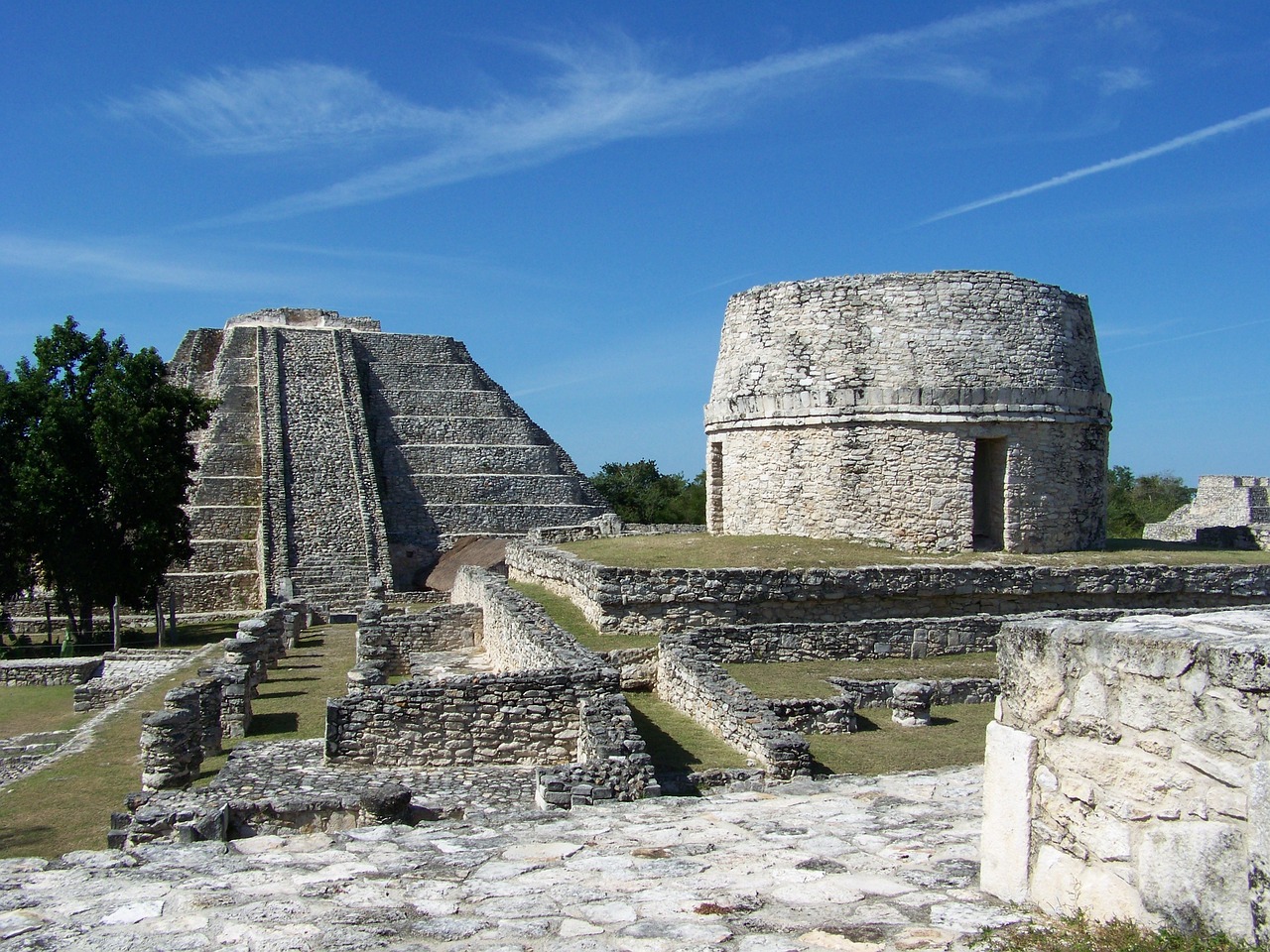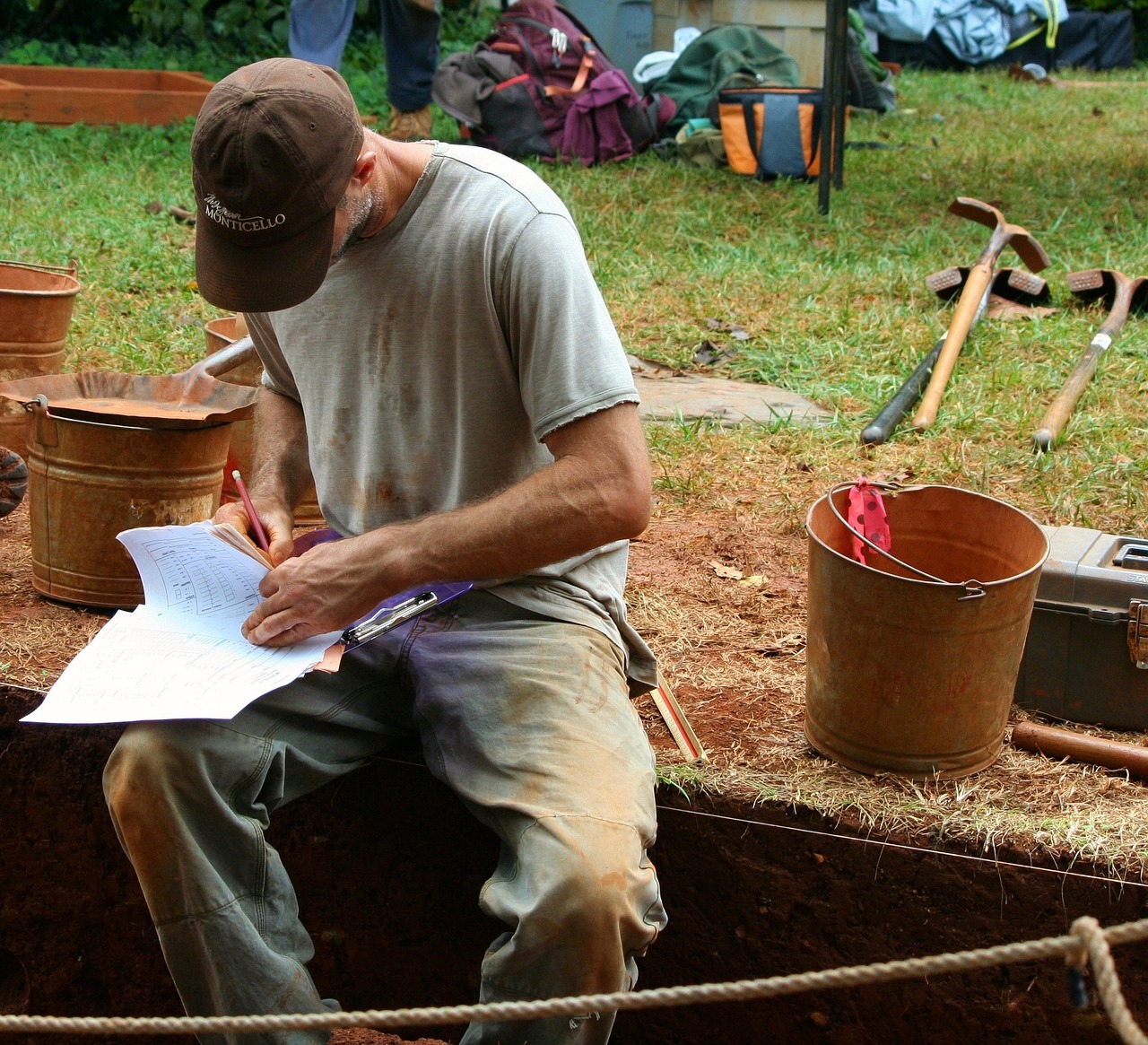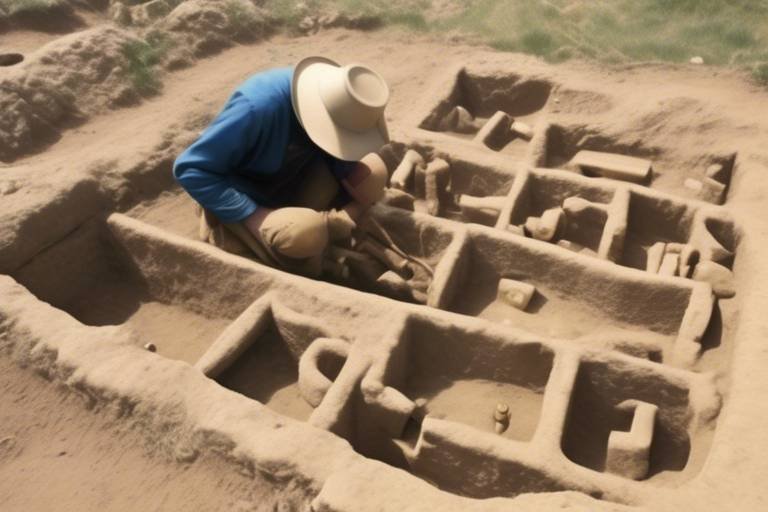The Importance of Field Schools in Archaeology
Field schools are a cornerstone of archaeological education, providing aspiring archaeologists with hands-on training that is essential for their professional development. These programs offer a unique opportunity for students to immerse themselves in the practical aspects of archaeological research, bridging the gap between classroom learning and real-world fieldwork.
By participating in field schools, students not only learn excavation techniques and artifact analysis but also gain a deeper understanding of the importance of preserving cultural heritage sites. Through proper excavation practices, documentation, and community engagement, field schools instill a sense of responsibility towards safeguarding archaeological resources for future generations.
One of the key components of field school training is site excavation, where students learn how to excavate archaeological sites following ethical guidelines and interpret stratigraphy to uncover the historical context of artifacts. This hands-on experience is invaluable in honing their skills and preparing them for a career in archaeology.
Moreover, field schools promote interdisciplinary collaboration by bringing together archaeologists, anthropologists, historians, and local communities. This collaborative approach fosters a holistic understanding of the complexities of the past, enriching students' perspectives and research methodologies.
Community engagement is another crucial aspect of field schools, as students interact with local communities near archaeological sites to understand the cultural significance of heritage preservation. This engagement not only promotes sustainable practices but also nurtures a deeper appreciation for the value of archaeological heritage.
Field schools also offer students opportunities for professional development through networking with established archaeologists, receiving mentorship, and guidance for career advancement. By navigating fieldwork challenges such as adverse weather conditions and teamwork dynamics, participants develop resilience and adaptability essential for archaeological research.

Hands-On Training
Hands-On Training at field schools is a cornerstone of archaeological education, offering students invaluable practical experience that complements their theoretical knowledge. Through hands-on training, participants engage in various aspects of fieldwork, from excavation techniques to artifact analysis, gaining essential skills for a successful career in archaeology.
At field schools, students have the opportunity to immerse themselves in excavation methods, learning how to carefully uncover artifacts while preserving the context in which they are found. This hands-on experience allows them to understand the complexities of archaeological stratigraphy and the significance of proper documentation in reconstructing past narratives.
Moreover, hands-on training extends to laboratory analysis, where participants learn how to handle, identify, and catalog artifacts discovered during excavations. By actively engaging with these material remains, students develop a deeper understanding of past human activities and the cultural significance of archaeological finds.
Field schools often simulate real-world archaeological scenarios, challenging students to apply their knowledge in practical settings. This experiential learning approach not only enhances their technical skills but also fosters critical thinking and problem-solving abilities essential for archaeological research.
Through hands-on training, students gain confidence in their abilities, building a strong foundation for their future careers as archaeologists. The combination of theoretical learning and practical application offered by field schools creates well-rounded professionals equipped to navigate the complexities of archaeological fieldwork with skill and precision.

Cultural Heritage Preservation
When it comes to in the field of archaeology, field schools play a vital role in instilling the value of safeguarding historical sites and artifacts. Through hands-on training and practical experience, students not only learn excavation techniques but also understand the significance of proper documentation and site conservation. By emphasizing the importance of preserving cultural heritage, field schools cultivate a deep sense of responsibility among future archaeologists towards protecting our shared past.
At field schools, students are immersed in the process of excavating archaeological sites with meticulous attention to detail and ethical standards. They learn how to record findings accurately, interpret stratigraphy layers, and piece together the puzzle of past civilizations. This hands-on experience not only sharpens their technical skills but also fosters a profound respect for the historical context of artifacts unearthed during excavations.
Moreover, artifact analysis is a crucial component of cultural heritage preservation taught at field schools. Participants engage in the identification, cataloging, and interpretation of artifacts, gaining insights into the material culture and daily life of ancient societies. By delving into the significance of each artifact, students develop a deeper appreciation for the stories they tell and the connections they reveal about human history.

Site Excavation
Site excavation is a fundamental aspect of field schools in archaeology, where students delve into the intricate process of uncovering historical artifacts buried beneath the earth's surface. This hands-on experience immerses participants in the meticulous techniques required to excavate archaeological sites with precision and care. By following ethical guidelines and employing stratigraphic analysis, students piece together the puzzle of the past, unearthing clues to ancient civilizations and their way of life.
During site excavation, students not only learn the technical aspects of digging and recording findings but also develop a deep appreciation for the layers of history waiting to be unearthed. The excavation process involves careful documentation of each discovery, creating a detailed record of the site's evolution over time. By understanding the context in which artifacts are found, students can reconstruct narratives of the past, shedding light on the cultural practices and societal structures of bygone eras.
Moreover, site excavation fosters a sense of reverence for the archaeological heritage present in the ground, emphasizing the need for responsible stewardship of these invaluable resources. Through hands-on experience, students come to realize the fragility of archaeological sites and the importance of preserving them for future generations. By engaging in excavation activities, participants not only learn practical skills but also internalize the ethical considerations and preservation principles that underpin archaeological practice.

Artifact Analysis
Artifact analysis is a fundamental aspect of archaeological field schools, where participants engage in hands-on examination of artifacts unearthed during excavations. This process involves a meticulous approach to identifying, cataloging, and interpreting various objects to gain insights into past human activities and material culture.
During artifact analysis, students learn how to differentiate between different types of artifacts, such as pottery shards, tools, and personal items, and understand their significance within the context of the excavation site. By studying these artifacts, archaeologists can piece together the puzzle of ancient civilizations and reconstruct aspects of daily life, trade patterns, and social structures.
Moreover, artifact analysis often involves the use of specialized tools and equipment, such as microscopes, cameras, and conservation materials, to study and preserve fragile objects. This hands-on experience not only enhances students' technical skills but also deepens their understanding of the archaeological process from discovery to interpretation.
Through artifact analysis, field school participants develop a critical eye for detail, learn to draw connections between different artifacts, and contribute to the overall narrative of the site's history. By delving into the material remains of the past, students gain a profound appreciation for the tangible links to ancient societies and the stories they hold.

Interdisciplinary Collaboration
Interdisciplinary collaboration in field schools is a cornerstone of archaeological research, bringing together experts from various disciplines to unravel the mysteries of the past. By combining the unique perspectives of archaeologists, anthropologists, historians, and local communities, field schools create a rich tapestry of knowledge that enhances our understanding of ancient civilizations.
Through interdisciplinary collaboration, archaeologists can draw on the expertise of other fields to gain insights into different aspects of the past. For example, anthropologists may provide valuable cultural context to archaeological findings, while historians can offer historical narratives that complement the archaeological record. This collaborative approach allows researchers to piece together a more comprehensive picture of past societies and their interactions.
Moreover, working with local communities is essential for bridging the gap between academic research and real-world impact. By engaging with community members near archaeological sites, field school participants not only gain valuable insights into local traditions and practices but also foster mutual respect and understanding. This collaboration ensures that archaeological research is conducted ethically and with the interests of the community in mind.

Community Engagement
Community engagement is a vital aspect of field schools in archaeology, as it fosters a deeper understanding of the cultural significance of heritage preservation among students. By interacting with local communities near archaeological sites, participants gain insights into the value of preserving historical resources for present and future generations. This engagement not only educates students about the importance of archaeological conservation but also promotes sustainable practices that benefit both the local community and the archaeological site itself.

Professional Development
Professional development in archaeology is a crucial aspect that field schools focus on to prepare students for successful careers in the field. These programs offer valuable networking opportunities where students can interact with established archaeologists, creating mentorship possibilities and guidance for career advancement. By connecting with professionals in the field, students can gain insights into the industry, learn about different career paths, and receive advice on how to navigate the challenges of transitioning from academic studies to professional archaeological practice.
Moreover, field schools not only provide theoretical knowledge but also equip students with practical skills essential for archaeological work. Through hands-on experience in excavation techniques, artifact analysis, and site preservation, students can develop a well-rounded skill set that is highly sought after in the archaeological field. This practical training enhances their expertise and confidence, making them more competitive in the job market upon graduation.
Furthermore, professional development in field schools goes beyond technical skills to include personal growth and resilience. Participants are exposed to various fieldwork challenges such as adverse weather conditions, logistical issues, and teamwork dynamics. By overcoming these obstacles, students learn to adapt quickly, work effectively in diverse environments, and build the resilience needed to thrive in the demanding field of archaeology.

Fieldwork Challenges
Fieldwork challenges are an inevitable part of archaeological expeditions, testing the resilience and adaptability of participants in real-world scenarios. The unpredictability of nature, logistical hurdles, and dynamics within the team present unique obstacles that must be overcome to ensure the success of the excavation.
Adverse weather conditions, ranging from scorching heat to torrential rain, can significantly impact fieldwork operations, making excavation challenging and uncomfortable. Archaeologists must be prepared to endure extreme temperatures and adapt their strategies to ensure the safety of the team and the integrity of the site.
Logistical issues, such as transportation delays, equipment malfunctions, and supply shortages, can disrupt the workflow of an archaeological project, requiring quick thinking and problem-solving skills. Participants learn to improvise and collaborate effectively to address unexpected setbacks and keep the excavation on track.
Teamwork dynamics play a crucial role in the success of fieldwork, as individuals with diverse backgrounds and expertise come together to achieve a common goal. Communication breakdowns, conflicting opinions, and differing work styles can present challenges that require patience, diplomacy, and compromise to resolve.
Fieldwork challenges not only test the technical skills of archaeologists but also their ability to adapt to changing circumstances, work collaboratively, and maintain a positive attitude in the face of adversity. Overcoming these obstacles fosters personal growth, resilience, and a deeper appreciation for the complexities of archaeological research.
Frequently Asked Questions
- What is the purpose of field schools in archaeology?
Field schools in archaeology serve the crucial role of providing hands-on training and practical experience to future archaeologists. These programs bridge the gap between theoretical knowledge and real-world excavation techniques, artifact analysis, and site preservation practices.
- What skills can students gain from participating in field schools?
Students participating in field schools can acquire a diverse set of skills including excavation methods, surveying techniques, artifact analysis, documentation practices, interdisciplinary collaboration, community engagement, and professional development opportunities. These skills are essential for a successful career in archaeology.
- How do field schools contribute to cultural heritage preservation?
Field schools emphasize the importance of preserving cultural heritage sites through ethical excavation practices, accurate documentation, and community involvement. By instilling a sense of responsibility towards archaeological resources, field schools play a vital role in safeguarding our shared cultural heritage for future generations.
- What are some challenges students may face during fieldwork?
Participants in field schools may encounter challenges such as adverse weather conditions, logistical issues, teamwork dynamics, and the physical demands of excavation work. Overcoming these challenges helps develop resilience, adaptability, and problem-solving skills essential for conducting successful archaeological research.



















